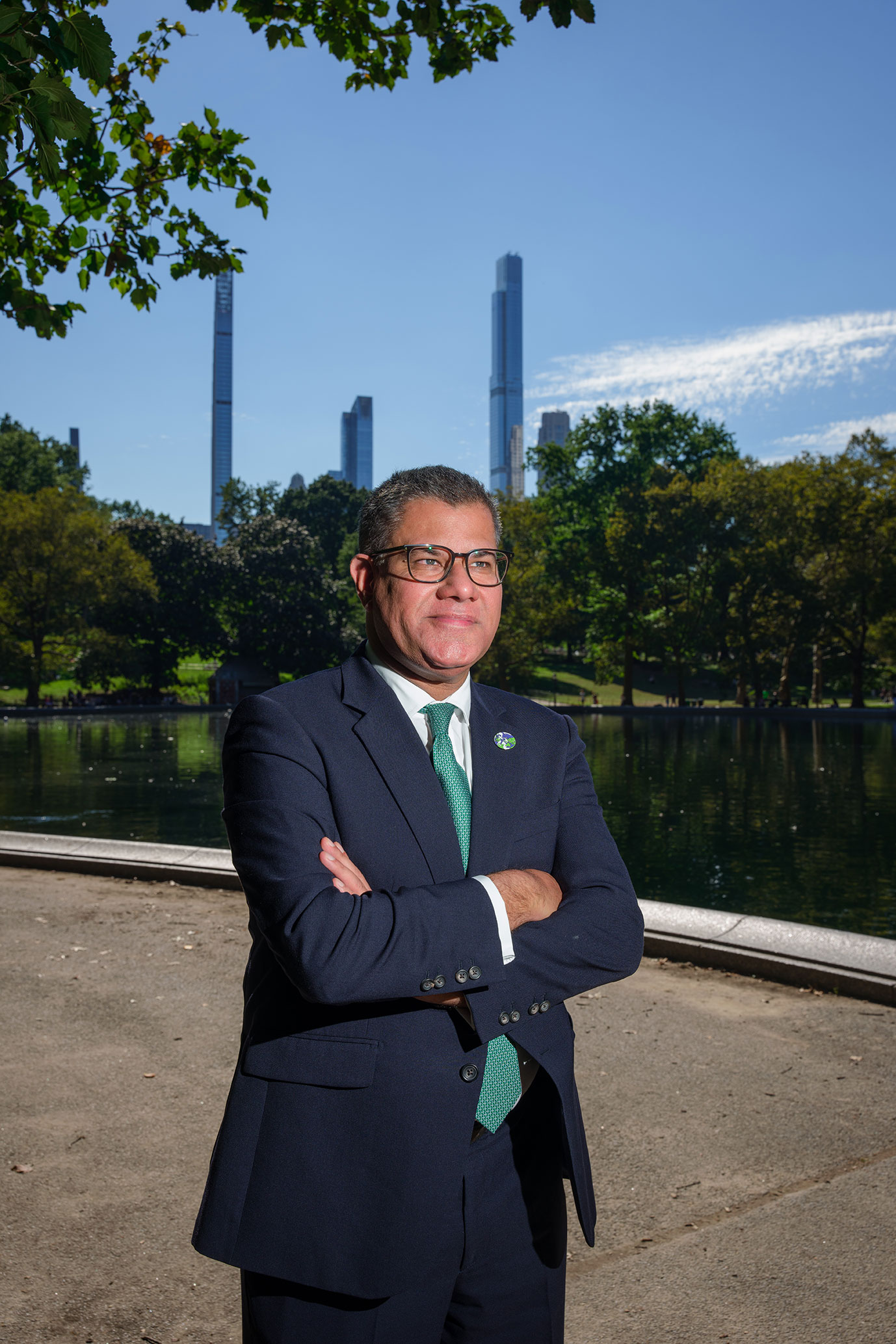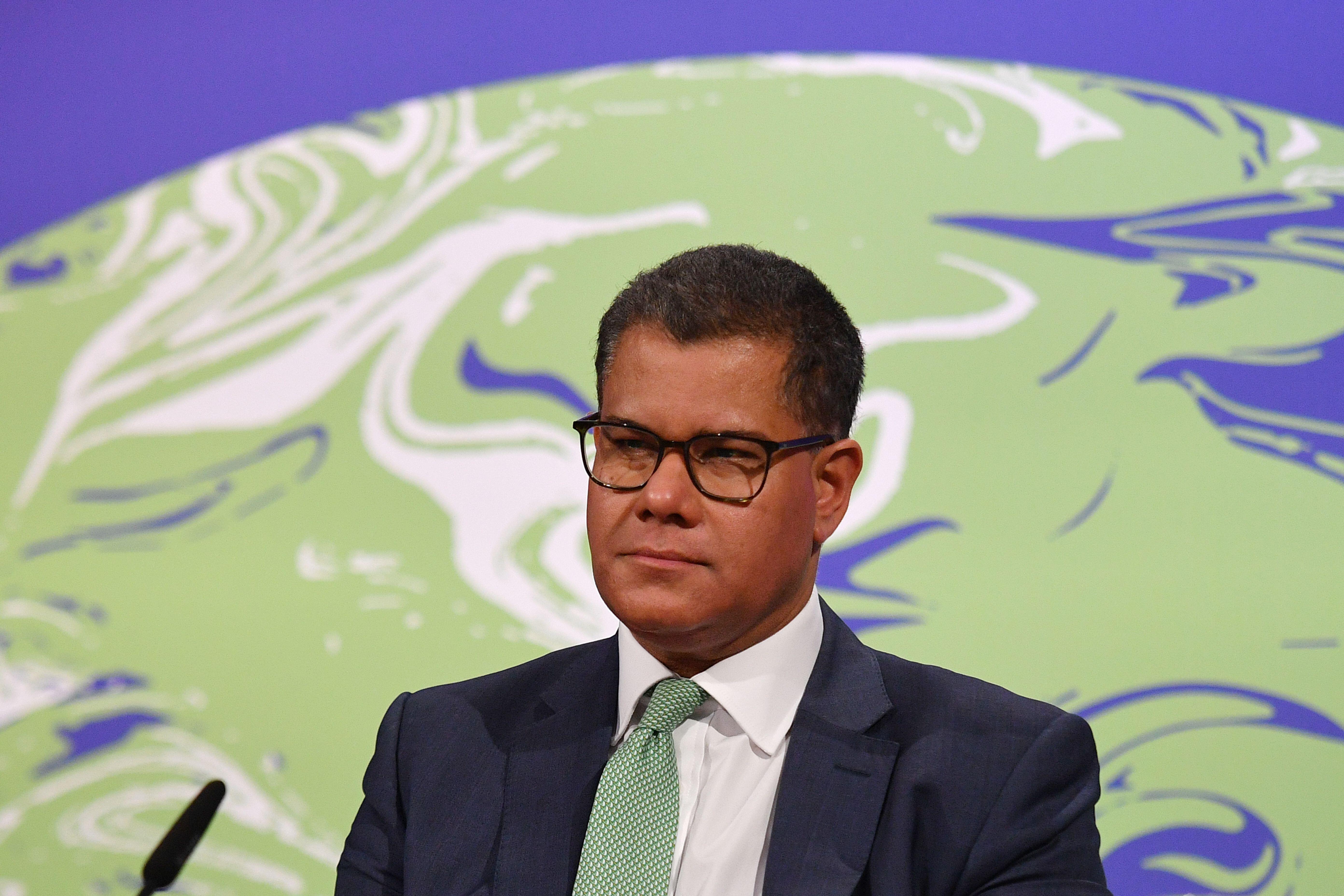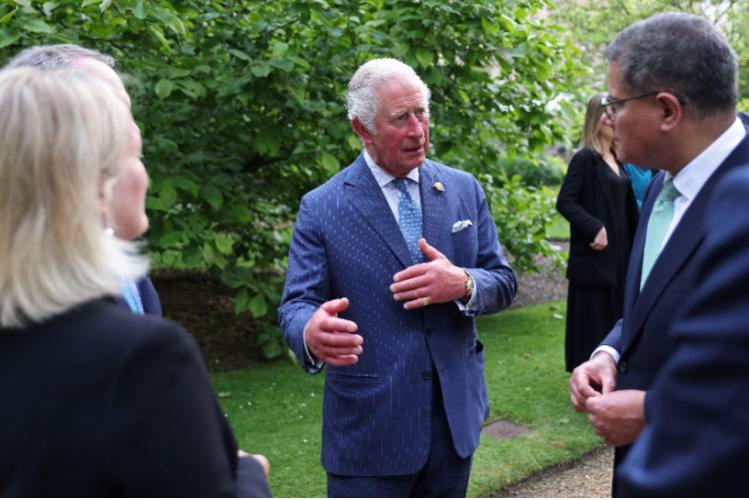Alok Sharma: COP26 is a chance to amplify the voices of vulnerable countries
10 min read
As President of COP26, Alok Sharma tells Isabella Kaminski he is anticipating a game of “multi-dimensional chess” to wrangle nearly 200 parties towards a global climate deal in Glasgow.
Alok Sharma must be wondering what time zone he’s in. It is a Friday afternoon and he is sitting in an office in the United States, on a visit to the UN General Assembly. In the preceding months he has travelled to 34 countries, some of them twice. And he has more to come – the US trip is a warm-up for the international climate talks in Glasgow, over which he will be officially presiding.
The UK is hosting COP26, the latest meeting of the UN Framework Convention on Climate Change (UNFCCC), where all eyes will be on world leaders and their negotiators as they aim to take decisive action to combat the climate crisis.
It is now six years since the Paris Agreement, a landmark international deal intended to limit the increase in global temperatures to 1.5C above pre-industrial levels. Since then the goal has become ever more pressing, with a scientific report by the UN’s Intergovernmental Panel on Climate Change (IPCC) in August issuing a “code red” for humanity.
Tangible signs of climate change have become eerily evident in the shape of recent extreme weather events including flooding in Germany and Belgium, severe drought in Brazil and hurricanes across the Americas.

Sharma is keen to highlight the climate success stories since the UK was chosen to preside over COP26 two years ago. “We have gone from less than 30 per cent of the global economy being covered by a net-zero target to 70 per cent. We’ve also got to the point where – and this is pretty historic – every G7 nation has now committed to an ambitious 2030 emission reduction target and also net-zero by 2050.” The G7 has also agreed not to finance any more international coal projects, he adds.
However, many of the details of the Paris Agreement have yet to be ironed out, including how international carbon market rules will work, the timeframes for national climate pledges, and transparency rules governing how progress is reported. Action on these issues stalled at the last climate talks in Madrid in 2019.
Nor do the country pledges on which the deal is based, known as “nationally determined contributions” or NDCs, go anywhere near fulfilling the brief. A UN report published in September shows existing NDCs will cause emissions to rise by 16 per cent by 2030 compared with 2010, putting the world on track for 2.7C of warming by the end of the century.
Sharma’s role as President of COP26 is to be a neutral overseer. But while remaining impartial, the cabinet minister and MP for Reading West has said he wants the voice of smaller countries to be heard. And he has set his sights on a few key goals.
I’ve now spoken personally to well over 100 governments at leader level.
The first is to be able to credibly say he is keeping the 1.5C goal alive. “I’ve now spoken personally to well over 100 governments at leader level, at ministerial level,” he says, adding that discussions have been “constructive but frank”.
An unavoidable issue at this meeting will be climate justice – the principle that not every country and individual is affected by climate change in the same way, and not everyone is equally responsible for causing it – and the need to address it.
Poorer nations that are more vulnerable to rising temperatures and sea levels, and therefore likely to be disproportionately affected by more frequent and extreme disasters, have long pushed for support to help them address the damage that will inevitably be caused.
The House asks Sharma what climate justice means to him, and he reflects on a recent visit to the Caribbean island of Barbuda, which was devastated by Hurricane Irma in 2017. “They’ve done a little bit of rebuilding but actually when you go around this island it literally looks like a hurricane came in a few weeks ago. It is incredibly moving to see what is going on and talk to the people there.
I see this COP26 process as an opportunity for the UK as a presidency to help amplify the voices of the most vulnerable countries.
“The UK presidency is neutral and… I’m there to build consensus. But I see this COP26 process as an opportunity for the UK as a presidency to help amplify the voices of the most vulnerable countries and allow them to raise their expectations of a developed nation.”
He says there are two key things developing nations have asked of him. The first is for the high-emitting G20 countries to come forward with the “right level of ambition”. A number of the G20, including Turkey, Saudi Arabia, India and China, missed the July deadline for submitting revised NDCs while many others have failed to put forward more ambitious carbon-cutting targets.
“If you look at the countries that have so far submitted ambitious NDCs, very many of those are on the frontline of climate change. They’re not big emitters, but they are playing their part, and that’s what they want to see from the biggest emitters as well,” says Sharma.
The second ask is the delivery of a promised $100bn (£73bn) in annual climate finance. Wealthy countries promised this to their poorer counterparts by 2020, however, it was revealed in October that the full pledge would not be met until 2023. “The $100bn figure has become totemic,” says Sharma. “Trust within climate negotiations is pretty fragile, and one way we will build trust is if we’re able to show we are on the path to $100bn a year. I have been pressing donor countries privately very hard on this – publicly as well.”

Sharma’s diplomacy has had some success. Following his visit to Washington DC, US President Joe Biden said he would seek to double the nation’s funding to $11.4bn (£7.3bn) a year by 2024. “I was very pleased to welcome that,” Sharma says. “It does help to act as a bit of an unblocker in terms of ambition from others on finance. And, also, I think it was being used by some countries as a reason not to be more ambitious themselves, particularly when it comes to their emissions reduction targets.”
And while China has not yet submitted a more ambitious revised NDC to the UN, nor committed to halt domestic coal production, President Xi Jinping has promised to stop building coal-fired power plants overseas. “I’m pleased that’s now come through [although] we need to see the details of course,” says Sharma. “China is [responsbile for] over a quarter of the world’s emissions right now and what they do absolutely matters.”
The highly technical and rather insular world of climate negotiations is a new political field for Sharma, who previously held ministerial posts in the Department for Work and Pensions, and Ministry for Housing, Communities and Local Government (now Department for Levelling Up, Housing and Communities), followed by stints as secretary of state for international development, and then business, energy and industrial strategy.
Glasgow will be his first COP, so The House asks how he has been preparing. “I spent a lot of time talking to former COP presidents and former chief negotiators. I have a good team around me – people who have experience of these negotiations – and the key thing for me is understanding their experience from previous COPs, in terms of what worked.”
China is [responsbile for] over a quarter of the world’s emissions right now and what they do absolutely matters.
He appears less sure-footed when asked about domestic criticism. As the host, it is unsurprising the UK’s own climate commitments have been scrutinised. In 2020, the government promised to set an ambitious new target to cut national greenhouse gas emissions by 68 per cent by the end of the decade, and earlier this year announced that no more UK export finance would fund fossil fuel projects overseas.
But Britain also continues to extract and consume vast amounts of fossil fuels. In particular, the UK has been heavily criticised over plans to open a new coal mine in Cumbria and for continuing to exploit oil and gas, such as through the development of a new oil field at Cambo, west of Shetland.
On the first point, Sharma deflects a question about the signal it sends with the technicality that “there isn’t yet a coal mine”. “It’s a public inquiry so we just have to wait and see what comes out of that.”
In relation to Cambo, he points out the licence was granted back in 2001 but will only say that “the developers are looking to see what they can do with this and, again, there has been an inquiry around this and obviously the oil and gas authority is considering this”.
We all have a role to play. Governments, businesses and civil society are now effectively singing from the same hymn sheet.
On a more personal note, Sharma has been in the spotlight for his considerable carbon footprint, racked up while flying around the world talking to people about climate change. “It’s quite interesting that when this criticism emerged… there were a whole range of climate groups and NGOs who said it was the right thing to do to build those relationships, which will be really quite vital in those negotiations. We’ve also been very clear this is going to be a sustainable COP and any of my travel or that of my team will be offset as part of this process.”
(Sharma and his office do not engage when asked about celebrities such as the Duke and Duchess of Sussex and the band Coldplay who travel by private plane while urging action on climate change.)
Over the summer, COP spokesperson Allegra Stratton urged people to make small changes to help the environment, such as freezing leftover bread rather than throwing it away, and not rinsing plates before putting them in the dishwasher. Asked to reflect on the broader question of individual versus governmental and corporate responsibility for systemic change when it comes to climate, Sharma says: “We all have a role to play. Governments, businesses and civil society are now effectively singing from the same hymn sheet in terms of talking about the need to address climate change. We’re all talking about green growth and green jobs.”
However, the ultimate success or otherwise of COP26 will depend in part on who sits around the table in Glasgow. China, for example, will be represented but Xi will not be attending the high-level ministerial meetings.

Vulnerable nations have also expressed concern about measures required to minimise Covid transmission, including mandatory vaccinations and quarantine, alongside the usual high costs of travel and accommodation.
“Every country recognises how complex it is to put on an event of this size,” says Sharma, “and the complexity has been added to because of Covid.” But he is confident that anyone who needs a vaccination will get one and notes the UK is helping pay for quarantine. While he cannot guarantee that everyone who wants to be there will be, he thinks there will be “strong representation,” even from low-lying Pacific Island states.
Sharma is adamant that an in-person COP is the only way for the big political issues on climate change to be resolved, saying many vulnerable nation representatives want to be there in person. “And the reason is they want to sit at the same table, face to face with the big emitters, and look them in the eye. We’ve delayed this by a year already [but] climate change hasn’t taken time off.”
With the stakes so high, and so many technical and geopolitical issues to resolve, Sharma describes the talks as like “multi-dimensional chess”. “This is quite different from Paris, where there was effectively one agreement that countries were trying to meet. We’ve got almost 200 parties here that we need to ensure are coming together and reaching a balanced outcome which is delivered on consensus.”
But he stresses every country he has been to “has been very clear they want to see COP26 as a success”. His own professional reputation relies on it too.
